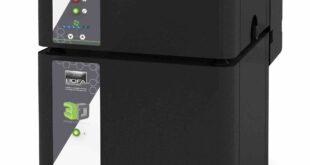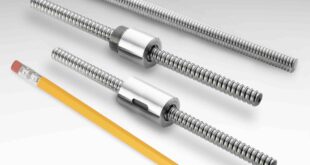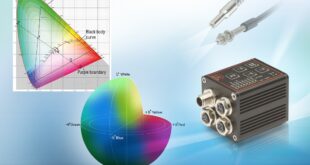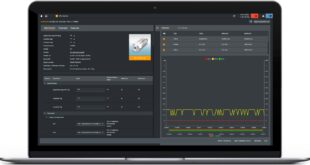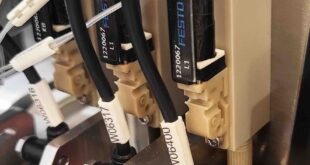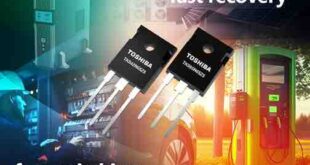Control for Henniker Plasma’s most advanced surface treatment system yet – the Nebula – is based on a compact Mitsubishi Electric’s MELSEC-L series PLC used to accurately control the demanding and complex plasma processes.
The end result is a UK designed and manufactured machine that offers customers the ability to develop and manufacture new products with innovative and attractive material surface properties..
By combining different plasma treatments such as surface cleaning, activation, etching and coating into one fully automated machine, the Nebula provides benefits for research centres and manufacturing facilities alike.
Thanks to a highly flexible recipe driven control system, it is possible to batch manufacture and develop bespoke plasma methods for pioneering products for a wide range of sectors such as aerospace, automotive, semiconductors, industrial printing and medical devices.
In effect, the low-pressure machine provides a comprehensive solution and empowers users to have full control over the plasma process.
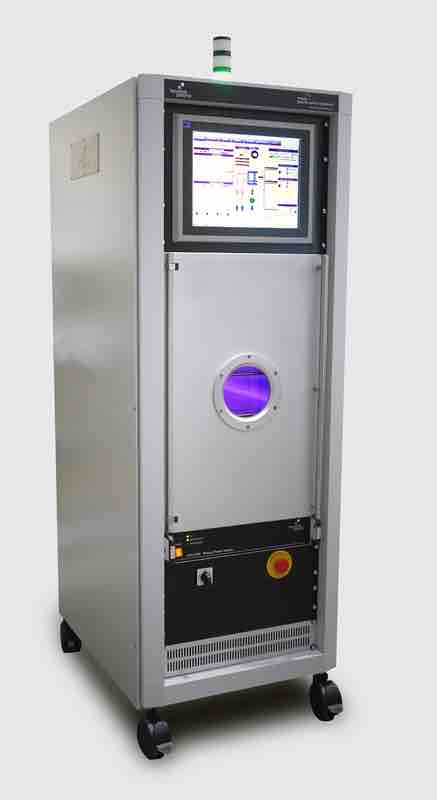
Gill Bolton, Marketing and Communications Manager at Henniker Plasma, explains: “The Nebula is one of the most advanced compact plasma surface treatment machines available on the market today. It is able to perform unique processes based on customer’s independently developed recipes. For example, users can use a selection of gasses for coating treatments in order to produce homogenous and reproducible advanced surfaces.”
A partnership borne out of advanced technology and local support
A complex low-pressure plasma surface treatment system like the Nebula requires advanced control to make sure each process recipe is actioned with extreme precision and repeatability.
Gill Bolton adds: “Due to the level of sophistication offered by the Nebula the system required a PLC; unlike other plasma treatment machines that use simpler controllers the Nebula needed to provide more treatment process options and a much wider scope of adjustability.”
The quality of the control system was also important: “Selecting a PLC provider renowned for the quality of its products was crucial for Henniker Plasma, as this helps us ensure the Nebula’s performance and reliability in the field. It also demonstrates a commitment to deliver excellence to our customers. This is why Mitsubishi Electric was the obvious choice for us.
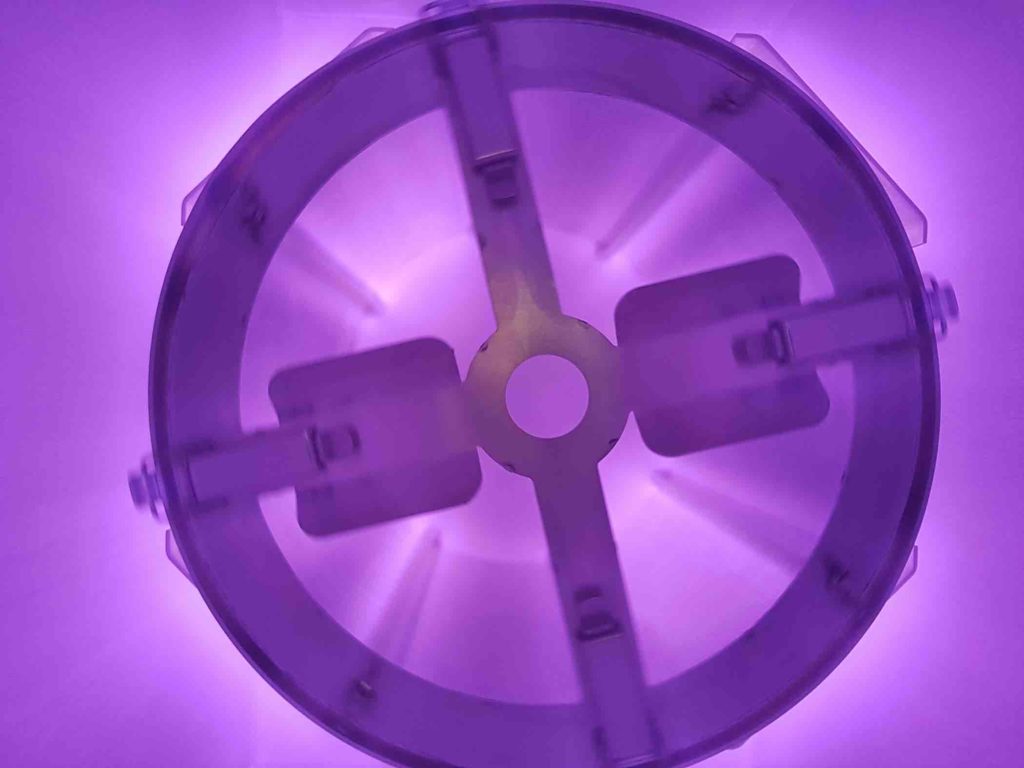
“Another element that Henniker Plasma was looking for in an automation supplier was global brand acceptance, combined with the ability to offer responsive, localised support to us and our UK-based customers. Mitsubishi Electric was able to address this requirement through a combination of support from the Hatfield UK base and specialist technical distributor, LC Automation.”
Achieving powerful control in a small footprint
Following an in-depth discussion on the Nebula’s system requirements, Mitsubishi Electric, LC Automation and Henniker Plasma agreed that the ideal controller would be the MELSEC-L series PLC. While the diminutive size of the L series would fit perfectly within the machine, its high-end performance would support the advanced plasma treatment functions offered by the machine.
Steve Eckersley, Senior Sales Engineer at LC Automation, explained: “While Nebula is larger than other, simpler plasma treatment units, Henniker Plasma required the control panel to be as compact as possible to minimise the machine’s overall footprint for customers.”
The PLC connects to the Nebula’s HMI operator terminal, where users can create, modify and test new recipes. The PLC then communicates with the vacuum system’s different valves. These are responsible for the release of one or multiple gases in the correct amount in order to create the most suitable mix for the selected process.
In addition, the PLC controls an optional rotary drum mechanism to treat high volumes of small parts and the monomer dosing inlet for plasma polymerisation.
The control system is also able to record and store process data to ensure full visibility and traceability.
Ensuring customer satisfaction
The resulting fully automated, advanced plasma treatment unit also offers the Henniker design team room for continuous improvement, delivering more state-of-the-art solutions based on the same control system components and architecture.
Gill Bolton commented: “We believe that the Nebula will have a significant impact on a number of research projects and manufacturing processes. The creation of such a sophisticated system with this level of flexibility would not have been possible without the support from Mitsubishi Electric and LC Automation. We are extremely pleased with their expertise and round-the-clock availability, as well as with the quality of the controller.
“We look forward to working together on future projects developing cutting-edge plasma treatment systems.”
Chris Booth, Key Account Manager at Mitsubishi Electric, concluded: “It was exciting to work with Henniker Plasma and LC Automation on such an interesting and innovative application. We are delighted to know that Henniker Plasma is happy with our products and support and we look forward to collaborating with them in the future.”
 Engineer News Network The ultimate online news and information resource for today’s engineer
Engineer News Network The ultimate online news and information resource for today’s engineer
